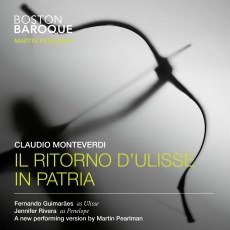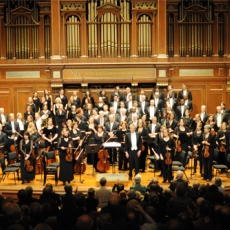Boston Baroque - Monteverdi: Ulisse - Gramophone
There is a thorny issue about how much (or little) of Il ritorno d'Ulisse in patria (Venice, 1640) is actually by Monteverdi. Pioneering versions by Nikolaus Harnoncourt and Raymond Leppard in the early 1970s plastered reorchestrated ‘realisations' on to the music that omitted only the kitchen sink - a philosophy later carried over to spiced-up imaginings by René Jacobs and Gabriel Garrido. Monteverdi experts are certain the composer's expectation was a limited band of just a few strings and continuo players.
Martin Pearlman's amiable essay observes that there cannot be a single ‘correct' way to bring about an effective interpretation of this problematic score. In principle his performing edition inclines towards the anachronisms of the interventionist brigade but in practice he often values economical understatement. Orchestral parts have been composed to accompany singers in various scenes that present moments of heightened emotion, and concise ritornellos are sprinkled copiously with recorders and cornetts (both unlikely to have been used in Venetian operas during the 1640s). Boston Baroque's large continuo group has two harpsichords, organ (using a reedy regal registration whenever Neptune sings), two theorbos (one sometimes playing a guitar) and a cello - although the copious use of melodic bowed bass in recitatives is contentious.
The cast respect the poetic eloquence and dramatic sense of Giacomo Badoaro's libretto. Fernando Guimarães as a multi-dimensional Ulisse exploits his rich middle register. Jennifer Rivera deftly conveys the predicaments of the long-suffering Penelope. The contrast between the kindly shepherd Eumete (Daniel Auchincloss) and the parasitical glutton Iro (Marc Molomot) is characterised vividly, and Aaron Sheehan's more effortless tenor suits the youthful Telemaco. The trios for Penelope's despicable suitors Anfinomo, Pisandro and Antinoo are aptly characterised but over-egged by some old-fashioned vibrato and approximate intonation; brief ritornellos between their attempts to draw Ulisse's bow would have been just as effective played by only strings (instead of the cornucopia of recorders and cornetts). Pearlman's vision does not offer perfect answers but no individual performance has ever got everything right - and it is always a pleasure to become reacquainted with the most under-appreciated of Monteverdi's three extant operas.

